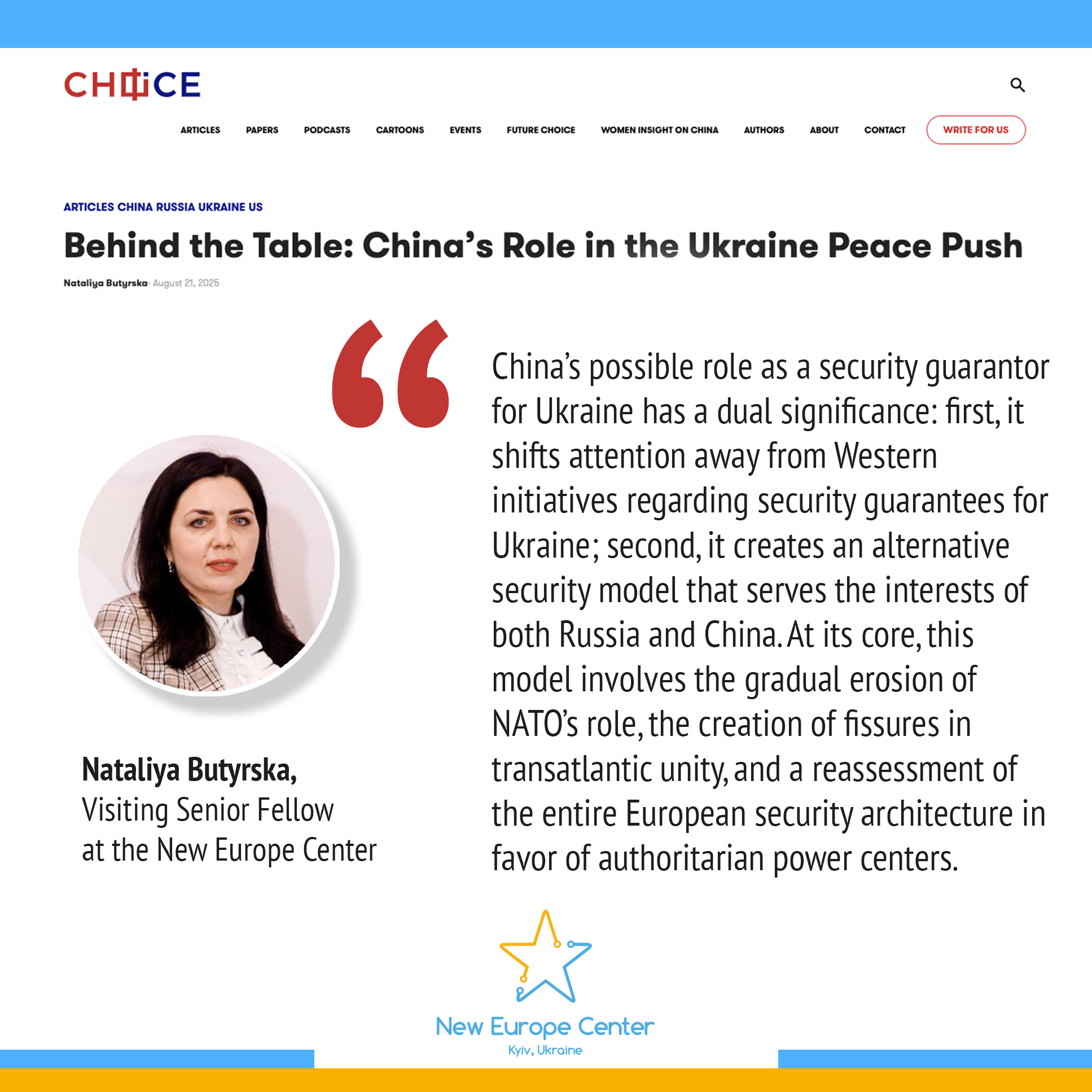
“China’s possible role as a security guarantor for Ukraine has a dual significance: first, it shifts attention away from Western initiatives regarding security guarantees for Ukraine; second, it creates an alternative security model that serves the interests of both Russia and China. At its core, this model involves the gradual erosion of NATO’s role, the creation of fissures in transatlantic unity, and a reassessment of the entire European security architecture in favor of authoritarian power centers.”
Nataliya Butyrska, Associate Senior Fellow at the New Europe Center, analyzes China’s role in Russia’s war against Ukraine and its impact on peace initiatives.
The author emphasizes that despite Beijing’s declarative “neutrality” and rhetoric of supporting peace, it effectively assists Moscow through trade, technology, and political cover: “China’s practical actions reveal a substantial gap between its peace-oriented rhetoric and its behavior. Beijing has opposed reducing imports of Russian oil, a step that could have contributed to de-escalation, and continues to provide Moscow with economic and technological support.”
China seeks to prevent Russia’s defeat, since maintaining it as a partner helps Beijing undermine Western unity and strengthen its own position in global competition. “China avoids responding directly to the question of whether it is willing to provide security guarantees in the context of a Russia–Ukraine peace settlement. Nonetheless, its wait-and-hold approach and strategic coordination with Russia allow Beijing to indirectly support Moscow in shaping conditions that gradually reorient the balance of power toward the “Dragonbear” axis. This strategy provides China with flexible control over the peace negotiation process, minimizing the risks of direct intervention in the conflict while simultaneously creating structural preconditions for the long-term reconfiguration of the global security architecture”, concludes Nataliya Butyrska.
Read more on ChinaObservers.







